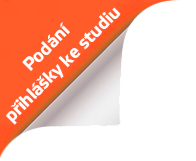The Summer in the Land of the Elephants
Morning of 5th September 2018 in Phnom Penh. Waking up in an AC-cooled room in a hostel in the middle night must be still an effect of a jet-lag from travelling for 24 hours from Prague to Phnom Penh several days ago. Sleeping at the Bangkok International Airport seemed like a smart idea in the beginning, but my back would strongly disagree, so that didn’t help with sleeping either.
The days started to blend together, every day more-or-less starting and ending the same – a necessary routine. Waking up 7AM, tuk-tuk rides to the other side of the city through the busy and chaotic streets of Phnom Penh's rush hour would wake a strongest sleeper up, no need for coffee when biting your nails and praying to whatever deity one can find while our energetic tuk-tuk drivers were finding their ways through the ''no-traffic-rules “streets of Phnom Penh. On lucky days, we would be picked up by our speechless white 9-seat van driver, I called him Mr Silent. Nice guy, always in front of the hostel on time, with the same emotionless morning expression on his face, just doing his job – the morning after morning.
School work was fun. Cambodian students were quite eager to find every piece of information they could from us CZU students, mostly sharing their wishes and dreams of one day studying abroad on one of the Master programmes. Our country presentations opened new horizons for them and made their dreams quite within a grasp, even though most of them were coming from low-income families. Through lectures and group-work, not to mention the contribution of Miloslav's unsatiable positive energy, we connected immediately, which made all problems easily solvable. Morning till afternoon, with a couple of snack-breaks throughout the day, each break having different local fruit on offer, traditional lunches, and till 4 PM, our 8-day shift at the Royal University of Agriculture was done!
Nightly activity was mostly connected to work. PhD. life requires loads of time, and when met with deadlines, one must sacrifice social life for Literature Reviews and Article preparations. Busy streets of Phnom Penh didn’t rest for a second, bristling noises of car horns, bikes and tuk-tuks rampaging the streets, and all the smells of local cuisine filling up the air with a distinct and desirable smells. Regardless of the day of the week, or the weather forecast, the city's outskirts were full of life, both locals and tourists making their way through the traffic of cars, bikes and street vendors. Our school program mostly consisted of group works and lectures indoors, but 1 day was reserved for a street-walk, with a job of interviewing tourists visiting Phnom Penh that will later be analysed and presented to the rest of the groups. USA, Australia, New Zealand, Nigeria, Poland, Slovakia, Hungary, Norway, Germany....the whole world was represented in the heart of Phnom Penh – around the city centre. Hot streets and boiling pavements were annulled by hectolitres of water and any type of shade-giving tools, while most of the tourists shining brightly white from sun creams protecting their arms and faces. It was a good day of work and satisfaction, exploring the main squares, monuments and centres and getting introduced to the well-known culture of the Khmer.
The overall school program was meticulously planned by Miloslav and I must say, it was a mix of both work, education and tourism in equal quantities. Upon finishing our final project, trips to Oodong Temple and exploring the Museum of Genocide, that was used as a camp of punishments and enslavement of opponents during the Khmer Rouge, were a refreshing change of pace from work to pleasure, and all students shared the same enthusiasm and happiness to be a part of this 10-day school.
The initiatives like these are accepted and welcomed by both local and visiting students, and by continuing these international gatherings, a network of connections of people and knowledge are likely to erect, while ensuring that the world is likely to become more open to changes, acceptance of different cultures and a sincerely more peaceful place for all the people of our Blue Planet.
Thank you, Czech University of Life Sciences Prague, and thanks to all the people that have given their time and effort to make all of this happen.

